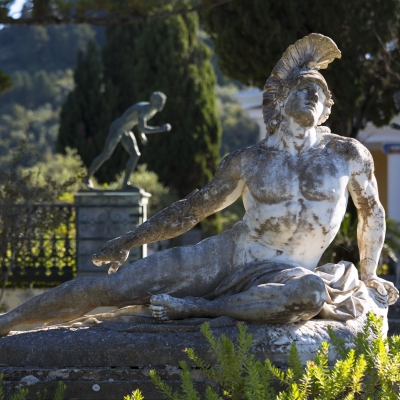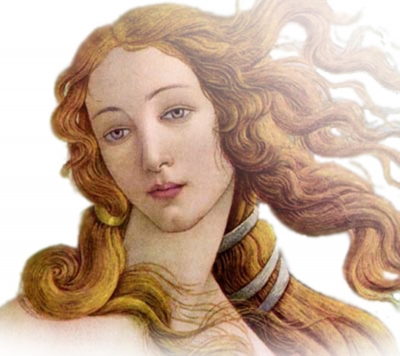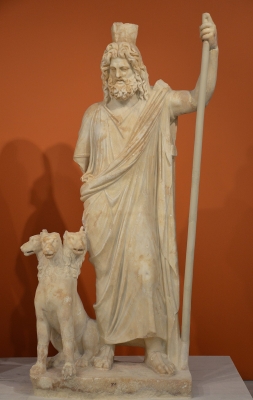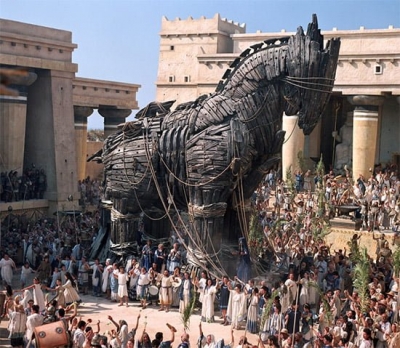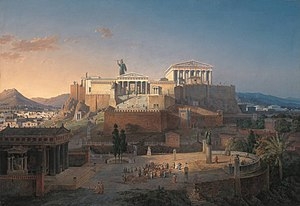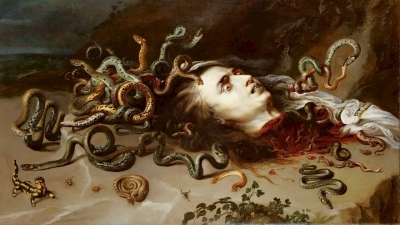According to legend, what caused the long-lost city of Atlantis to sink into the ocean?
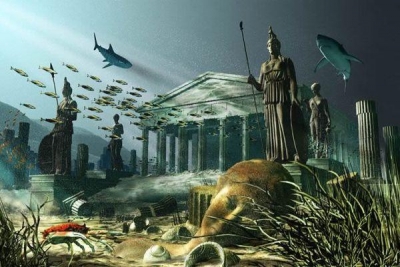
Few, if any, scientists think Atlantis actually existed. Ocean explorer Robert Ballard, the National Geographic explorer-in-residence who discovered the wreck of the Titanic in 1985, notes that "no Nobel laureates" have said that what Plato wrote about Atlantis is true.
Still, Ballard says, the legend of Atlantis is a "logical" one since cataclysmic floods and volcanic explosions have happened throughout history, including one event that had some similarities to the story of the destruction of Atlantis. About 3,600 years ago, a massive volcanic eruption devastated the island of Santorini in the Aegean Sea near Greece. At the time, a highly advanced society of Minoans lived on Santorini. The Minoan civilization disappeared suddenly at about the same time as the volcanic eruption.
But Ballard doesn't think Santorini was Atlantis, because the time of the eruption on that island doesn't coincide with when Plato said Atlantis was destroyed.
Romm believes Plato created the story of Atlantis to convey some of his philosophical theories. "He was dealing with a number of issues, themes that run throughout his work," he says. "His ideas about divine versus human nature, ideal societies, the gradual corruption of human society—these ideas are all found in many of his works. Atlantis was a different vehicle to get at some of his favorite themes."
The legend of Atlantis is a story about a moral, spiritual people who lived in a highly advanced, utopian civilization. But they became greedy, petty, and "morally bankrupt," and the gods "became angry because the people had lost their way and turned to immoral pursuits," Orser says.
As punishment, he says, the gods sent "one terrible night of fire and earthquakes" that caused Atlantis to sink into the sea.
Credit : National Geographic
Picture Credit : Google
